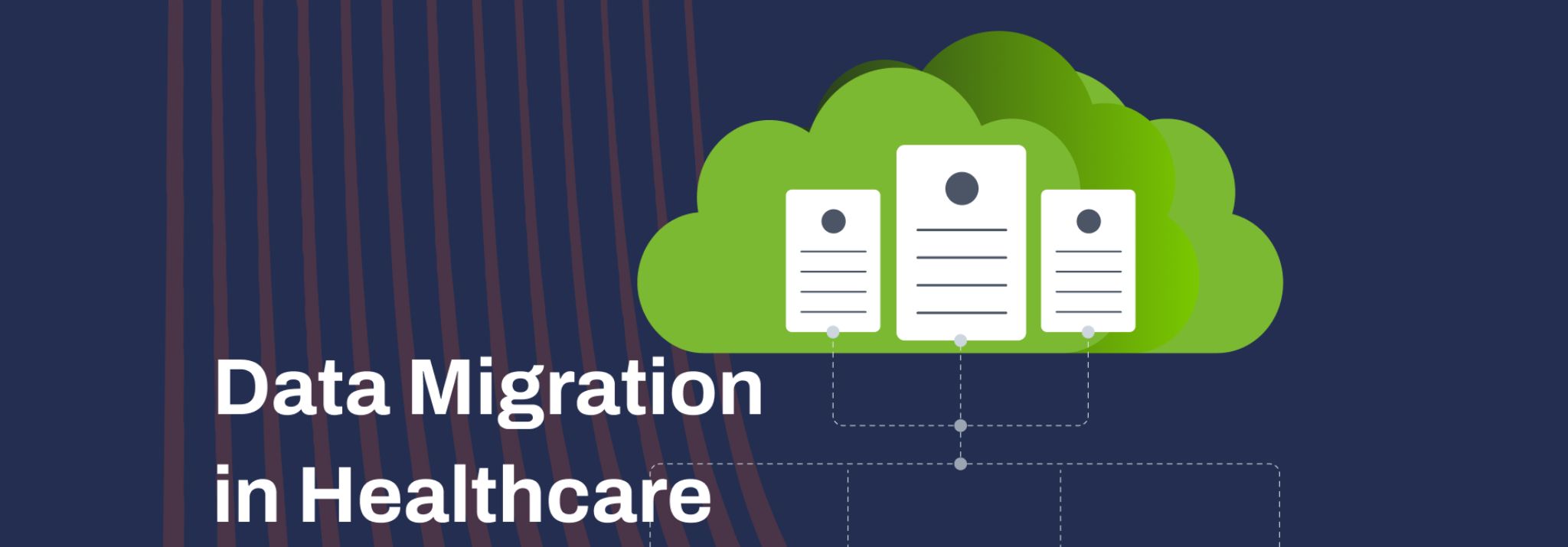Data migration in healthcare: Tools, challenges, and stages
Healthcare data can be handled securely as long as the information is accurate and secure, ensuring the confidentiality of medical records. This will minimize the number of cases where incomplete or damaged data is used, and in the long term will improve the level of patient care. In addition, data migration ensures compliance with HL7 standards for flexible and responsive operation of the institution's system. BHH member Software Development Hub’s experts have prepared this copy revealing the main aspects of data migration in digital health.
According to Gartner statistics, 83% of migration projects are doomed to failure or do not fall within the planned budgets and schedules. Therefore, during data migration, for most companies, the data always needs to be thoroughly cleaned and prepared according to the requirements of the new system.
What is Data Migration in healthcare
Data migration in healthcare refers to the process of transferring patient information, clinical records, and other healthcare-related data from one system or platform to another. As healthcare organizations increasingly adopt advanced health information technologies and electronic health record (EHR) systems, the need for efficient and secure data migration becomes crucial. This process ensures that valuable patient data is seamlessly transferred, allowing healthcare providers to make informed decisions and deliver quality care.
Reasons for Clinical Data Migration
Healthcare providers often migrate data when upgrading their EHR systems to benefit from the latest features, improved security, and enhanced interoperability. This can include improved patient data management, more comprehensive and user-friendly patient portals, and better tools for diagnosis and treatment planning. Upgraded EHR systems provide better compatibility with other systems, facilitating easier information sharing across healthcare providers.
When healthcare organizations merge or acquire others, data migration is essential to consolidate patient records and create a unified system for streamlined operations. Modern EHR systems can streamline various administrative and clinical processes, reducing paperwork, minimizing manual errors, and saving time.
Healthcare regulations and standards, such as those mandated by HIPAA in the United States or GDPR in Europe, are constantly evolving. Changes in regulatory standards and compliance requirements necessitate data migration to ensure that healthcare organizations adhere to the latest guidelines and maintain data integrity.
Upgrading to more advanced health technologies allows healthcare providers to optimize workflows, reduce errors, and enhance overall operational efficiency by streamlining various administrative and clinical processes, reducing paperwork, minimizing manual errors, and saving time.
Challenges of Data Migration in healthcare
While data migration is crucial for healthcare organizations, it comes with its set of challenges:
- Data compatibility issues — incompatibility between source and target systems can lead to data loss, corruption, or misinterpretation during migration.
- Downtime concerns — healthcare providers need to carefully plan for downtime during the migration process to minimize disruptions to patient care and clinical operations.
- Interoperability challenges — ensuring seamless interoperability between different systems is a complex task that requires careful consideration of data standards and communication protocols.
- Staff training and resistance — healthcare staff may face challenges adapting to new systems, requiring proper training and change management strategies to overcome resistance.
Strategies for proper planning, managing expectations, and hiring data migration consultants will help avoid migration mistakes.
Leading practices in Healthcare Data Migration
To ensure a smooth and successful healthcare data migration, organizations should follow the best practices:
- Thorough planning.
- Data quality assessment.
- Data mapping and standardization.
- Data encryption and security measures.
SMART on FHIR is a powerful combination of standards and technologies that enable the development of flexible, interoperable healthcare applications. By using standardized tools like SMART on FHIR, the data migration process becomes more manageable and less prone to errors. This approach is particularly beneficial in the context of data migration, making the process more reliable and efficient, and recent advancements in this area are promising even greater capabilities in healthcare IT systems.
- Substitutable Medical Applications, Reusable Technologies (SMART) is a set of standards and protocols that allow developers to create healthcare applications that can be seamlessly integrated into existing healthcare systems. The "substitutable" aspect means these applications can be easily exchanged or replaced without affecting the overall system.
- Fast Healthcare Interoperable Resources (FHIR) is a standard describing data formats and elements and an application programming interface (API) for exchanging electronic health records. The FHIR standard is designed to make it easier for healthcare systems to share clinical information. It focuses on simplicity and ease of integration, supporting a wide range of data types and workflows in healthcare.
Verifying tools for Clinical Data Migration
Selecting the right tools for healthcare data migration is critical to the success of the process. Here are some tools commonly used in the healthcare industry:
- Mirth Connect. An open-source integration engine, Mirth Connect facilitates the exchange of healthcare information by enabling seamless connectivity between various healthcare systems.
- iNTERFACEWARE. Known for its integration engine, iNTERFACEWARE offers solutions that simplify the exchange of healthcare data, supporting interoperability between different systems.
- Redox. Redox provides a platform for healthcare data exchange, allowing organizations to securely and efficiently transfer data between EHRs, applications, and other healthcare systems.
- IBM InfoSphere Information Server. IBM's InfoSphere Information Server offers robust data integration capabilities, ensuring data accuracy and consistency during the migration process.
Healthcare Data Migration Company
Healthcare data migration is a mission-critical process that requires careful planning, the right tools, and adherence to best practices. Overcoming challenges and implementing effective data migration strategies is essential for healthcare organizations to harness the full potential of advanced healthcare technologies and provide improved patient care. Software Development Hub, a one-stop digital transformation company, develops cloud applications and FHIR-compliant solutions for healthcare systems and provides assistance in implementing modern software standards. With the right approach, healthcare providers can cope with the complexities of data migration and take advantage of modern healthcare technology solutions.


